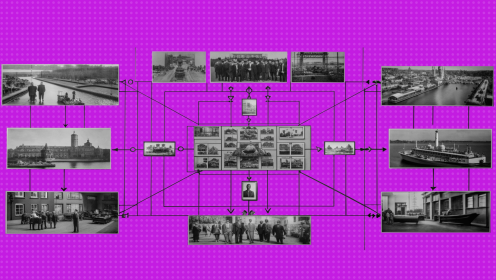The performer may not complete the task for several reasons:
- he was incompetent;
- he did not meet the deadline;
- he didn't understand the problem;
- he was overwhelmed with equally important tasks;
- he didn't have any motivation;
- he didn't have the necessary tools;
- the presence of force majeure.
Your task (sorry for that pun) when setting a task is to try to eliminate all potential problems. It is clear that you will not be able to influence force majeure in any way. For example, you set a task for a PR manager: to organize a speech for a conference. But the organizers of the conference could not get enough people and canceled it. As a result, the task was not completed due to the organizers. But the rest of it is within your power to influence.
For this…
Choose the right performer
In order not to make a mistake with the choice, adequately assess the capabilities of each potential performer and answer the question: do they have enough skills and knowledge?
I don't think it's right:
- to ask your husband to make a wooden chair if the last time he did something like this was 20 years ago;
- to instruct a web designer without artistic skills to draw an illustration;
- to require the HTML coder to be able to program in Python, and so on.
Don't set tasks that require a person to surpass themselves. It will rather burn out than cope in time for 100%.
Set an adequate deadline
Another important question is: does the performer have time for this task? It is stupid to demand a ready landing page from the frontender in two days, if he already has a couple of large sites in operation. That means the following:
- Try to choose a less overloaded performer. You can separately keep track of the load in Google Sheets or view the load in the working task manager - WEEEK, Trello, Asana, Jira and other project management systems all allow this.
- Set a deadline, taking into account possible problems that may arise in the course of work.
You MUST set a deadline. Without making it clear, the performer may feel that time is not limited, which means that you can safely procrastinate.
Ideally, you should always agree not only on the final deadline, but also on the intermediate ones, in order to control the progress of work.
Formulate the task correctly
Formulation is almost the most important thing. If the task is incorrectly formulated, the result will be far from expected. That is why each task should:
- be the answer to the question "what should I do?» and one-to-one match the action;
- start with a verb in the initial form (write, draw, and so on).
But even if the task is technically formulated correctly, there are two important points related to the perception of the task by the performer:
- it is better not to order him, but to put a problem in front of him;
- it is necessary to get an understanding of the task from him before he starts it.
Don't order, but talk about the problem
All tasks can be divided into two groups:
- tasks “orders” - are effective here and now, restrict the performer in finding the solution;
- tasks “problems” - are effective in the long term, free the performer in finding solutions and develop it.
Ordering is bad - so you use the performer as a thing, which threatens with sad consequences:
- The performer will do exactly what they are told. If the result of his work is useless, he will say that the problem is not in him, but in the task.
- The performer will start to get a negative impression of you. The performer knows better what to do, he needs to work with the client and you force him to write an unnecessary report.
- Over time, the performer will lose all interest in the work. It will seem to him that all his job is stupidly following orders from above. In short, a dead end and no development.
By solving a problem, a person develops and learns to be responsible for the result. For example, you ask him to draw a logo, and he offers you not one, but five options at once.
Get the performer to understand the task
Just because a performer takes a task doesn't mean that they've figured it out.
In an ideal world, you set a task, it is done, and you accept the result. But in reality, this does not happen. Most likely, the result will not meet your expectations and you will not accept it, but will send the performer to redo it. This will happen several times, and you and the performer will infuriate each other.
The fact is that the performer understands the task in their own way. Not because he's a fool, and you couldn't make sense of it, but simply because everyone is different. This is normal. You need to get to a common understanding.
The performer must ask you questions when accepting the task. He needs to understand your problem and offer a solution.
Set your priorities
A cool specialist knows how to prioritize himself. Sometimes so many tasks fall on the performer that it is absolutely impossible to figure out what to do in the first place. This is especially true in companies where tasks are assigned directly to the final performer, bypassing the heads of departments who could distribute the load here.
For example, the designer does both client and internal tasks. He is not responsible for the result to the client and just does the tasks that were set for him. If your task needs to be done faster than others, tell about it.
Fortunately, in all modern task managers, you can prioritize tasks.
Motivate the performer
To increase the performer's activity, you need to motivate them.
Different motivations work for different people: someone needs to be encouraged with money and someone just needs to get gratitude. In general, there is no need to throw money around. We, people, have a thing about praise. We are very social.
And you can also motivate for the future. For example, say to the performer: "I really liked how well you did the previous task. So I came to you with another one".
Provide everything needed
It really pisses me off, when they put a task and don't give you the access you need. And you're like, "Oh, man..."
When you set a task, make sure that the performer has everything that may be required. If you ask me to make a report, give me access to analytics. If you set a task that requires several people, give the performer the authority of a manager.
Setting goals is not as easy as it seems. Keep everything I've told you in mind so that your tasks are completed. Wish you good luck!


















